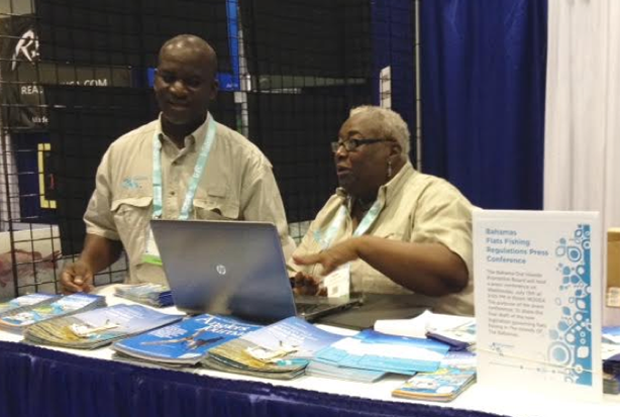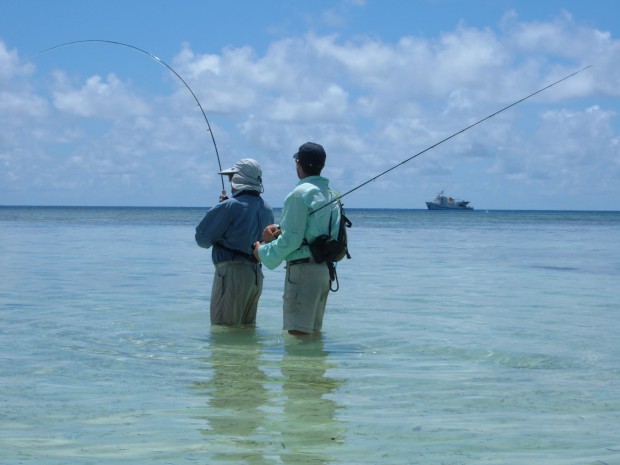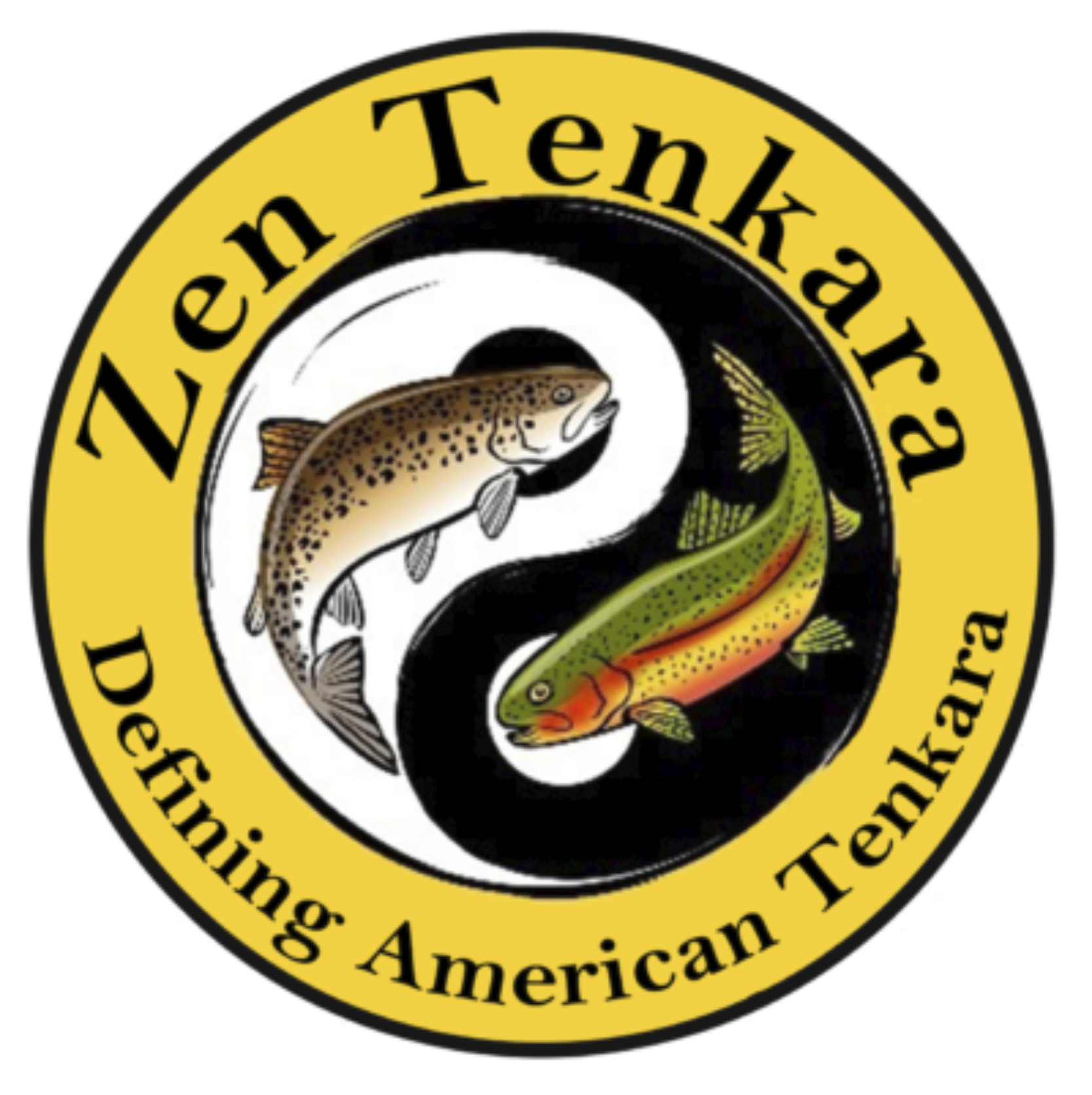
Mr. Benjamin Pratt, Senior Manger Domestic Tourism, Bahamas’ Ministry of Tourism, chats with Ms. Rena Glinton, Bahamas’ Permanent Secretary of the Ministry of Marine and Fisheries. They both headlined the Bahamas booth at the ICAST/IFTD Show in Orlando July,13, 14, and i5. On the 13th at an invitation-only press conference, Ms. Glinton presented the final ‘Flats Regulations for the Bahamas. It was acceptable to every stakeholder. A rare political outcome. Image credit Robert Ulrich, Bahamas Public Relations.
Posted on by Bonefish and Tarpon Trust
[dropcap]W[/dropcap]e all waited with bated breath to hear what Rena Glinton, Permanent Secretary of the Ministry of Marine and Fisheries of the Bahamas would announce at her July 13th press conference at ICAST in Orlando. It’s been a crazy year with much public comment and chatter and many anglers pledging never to return to the Bahamas if some of the proposed regulations passed. Given that the announcement was made  at a place overrun with fishing industry and media folks, we felt the outcome would be favorable and are pleased that the Bahamas has taken all of the feedback under advisement and agreed on very sensible regulations that will benefit the fisheries as well as those who travel there to fish. BTT applauds the Bahamas commitment to the resource and their recognition of the tremendous economic impact of recreational anglers (our economic study estimated it at nearly $150 million several years back, a number that has surely grown). We can all breathe a sigh of relief and book our next trip for fantastic bonefishing.
at a place overrun with fishing industry and media folks, we felt the outcome would be favorable and are pleased that the Bahamas has taken all of the feedback under advisement and agreed on very sensible regulations that will benefit the fisheries as well as those who travel there to fish. BTT applauds the Bahamas commitment to the resource and their recognition of the tremendous economic impact of recreational anglers (our economic study estimated it at nearly $150 million several years back, a number that has surely grown). We can all breathe a sigh of relief and book our next trip for fantastic bonefishing.
Ben Bulis, President of AFFTA noted, “cooler heads prevailed in the Bahamas and the new flats fishing regulations announced today clearly show the fly-fishing industry and the interests of the resource remain high priorities in the Bahamas.”
Angling Trade Magazine provided a good summary of the regulations:
• Visitors are going to be required to get a license. It’s reasonably priced: $20 for a week, or $60 for a year. A good portion of that money is going to be earmarked directly toward conservation causes.
• If you’re on vacation with the family, want to walk the beach with a fly rod before the kids wake up, and you have your license… you’re fine. Parties of two anglers fishing from a boat will need to hire a guide.
• Guides will all be certified by groups (that’s plural… and that’s important) that set uniform standards.
• Visiting anglers are catch-and-release anglers, period.
So the guides will be consistent and held to standards. The 37,000 visitors who visit the Bahamas every year to fish will pay a license fee (as they should) to support conservation of the resources. The fishery will be better managed. Local guides will be the gatekeepers for most visiting anglers. Tourism appeal will improve even more. And the Bahamas will retain its rank as the world’s premier bonefishing destination.
If ever there were a win-win outcome, this is it.







